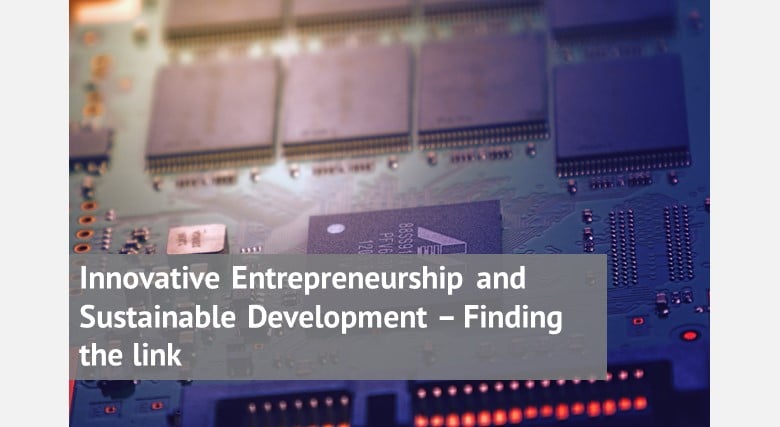The Fourth Industrial Revolution (4IR) has been driven by the unprecedented technological change and is asking for a completely new approach to the new economy. In this new model of economy, both innovation and entrepreneurship play a crucial role in supporting sustainable development by disregarding all the rules and obedience we have been relying on during the First and Second Industrial revolutions. This new model of economy is based on knowledge and innovation as well as on enhanced cooperation among different actors. This new model of economy- knowledge economy calls for continuous improvement and innovation of products, services and processes. But how does it help sustainable development?
Innovative Entrepreneurship- what is it?
While heavily exploring limited natural resources during the First and Second Industrial Revolution, humanity was not aware of all devastating consequences of such practice on environment and society. Nowadays, after decades of exploiting environmental resources and neglecting environmental challenges, humanity is trying to redirect the wheel to a more equitable and sustainable future. Also, not only environment has been affected by degradation but also society has undergone tremendous changes and it is faced today with a presence of huge inequality between the rich and the poor and almost disappearance of the middle class. The Fourth Industrial Revolution, that is rooted in digitalization and automation, has brought a shift in approach to how we work and how we utilise human and natural resources. The nature of work has undergone an overhaul and nowadays it is based on knowledge and innovation that are mainly centred in small circles of independent professionals working in networks, and these professionals are becoming the driver of innovation, awareness and tangible solutions. These entrepreneurs use their personal drive and talents and are free to take initiative and responsibility to create new disruptive and value adding products and services. In this respect, Boyan Slat, a young Dutch entrepreneur has designed Ocean Clean-up machine when he was still a teenager attending high school. Young and enthusiastic entrepreneurs flourish in the field of social entrepreneurship. Rebeca Minguela, is a founder and CEO of Clarity, a company that uses data science to address the problem of unequal capital allocation.
Innovative Entrepreneurship as a tool to achieve sustainable development (goals)
Innovative entrepreneurship is perceived as a tool for achievement of sustainable development (goals) and its role can be seen in both technological and social entrepreneurship. Technological innovation that is based on creation of disruptive models based on the Internet of things, digitization, artificial intelligence and blockchain has changed the input used to design products and services. Yet, apart from innovation taking place in large corporations, it is more present in start-up ecosystem where a relatively small group of talented and enthusiastic professionals are finding solutions for current issues and anticipated risks and directly or indirectly drive sustainable development forward. For instance, Planet a start-up founded in 2010 by a small team of physicists and engineers, today operates the world’s largest constellation of Earth-imaging satellites. It provides access to the data gathered from real-time monitoring of the earth’s surface, believing that ’’timely, global imagery and analytics will empower informed, deliberate, and meaningful stewardship of our planet’’. Social entrepreneurs are tackling the SDGs in innovative and scalable ways and they are critical to achievement of sustainable development (goals). Chatterbox is a start-up creating social impact by helping refugees to re-enter the world of work with confidence and self-assertion and not to be marginalised and underemployed after leaving their war-torn countries.
Is sustainable development even possible without innovation?
For sure, it is not. The sustainable solutions our world needs cannot be created without creative and innovative thinking and practical application. But innovation can be found anywhere and often is hidden in small start-up communities, not constrained by corporate procedures, linear thinking, and strict policies. Yet, traditional business is reaching out to smaller start-ups, looking to incorporate -what may be considered- disruptive approaches to the mainstream corporate world and we have witnessed such collaborations come to fruition. It is without doubt that knowledge, passion, talent and creativity drive the world forward and will certainly drive the world towards a sustainable future.
Photo by Johannes Plenio on Unsplash

